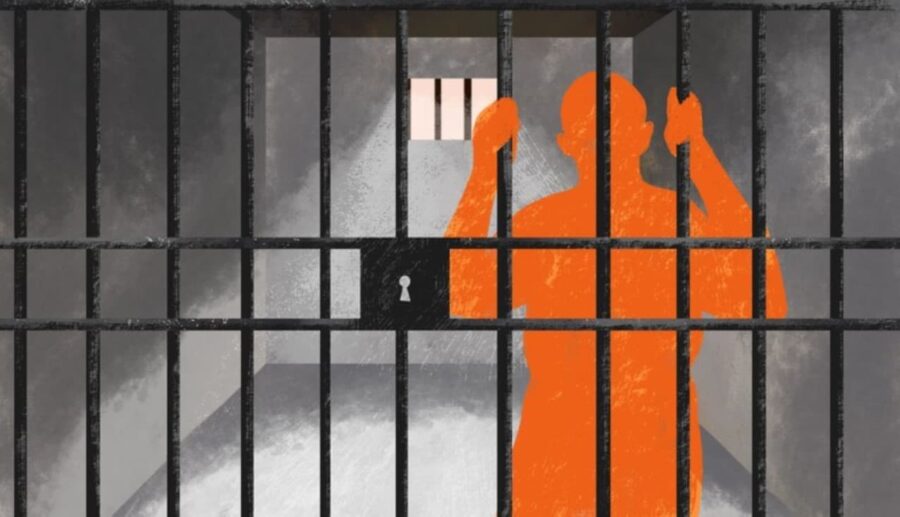
Court error causes years of delay in prisoner’s appeal
Judicial Inspectorate for Correctional Services received 2,244 complaints from prisoners appealing their sentences. KZN accounted for nearly half of these.

Sifiso Tembe has been unable to appeal his prison sentence because the KwaZulu-Natal High Court in Pietermaritzburg erroneously told his legal representatives that his case number was incorrect, and that they did not have his file.
- Sifiso Tembe has struggled to appeal his 25-year prison sentence after the KwaZulu-Natal High Court incorrectly advised his legal team that they did not have his case file.
- Legal Aid, representing Tembe, said despite “repeated pleas” they are still awaiting transcripts from the court.
- The Judicial Inspectorate for Correctional Services received 2,244 complaints from prisoners appealing their cases and KZN accounted for nearly half (1,014) of these.
Tembe was arrested in 2011. He was denied bail. In January 2013, he was sentenced to 25 years for murder and robbery.
He denies guilt and has been trying to appeal his sentence ever since. But his efforts have come to naught because of bureaucratic bungling.
Legal Aid, the independent state organisation tasked with defending people who cannot afford representation, tried to file Tembe’s appeal. But to do so they needed the records of the case. These proved difficult to obtain.
GroundUp first investigated Tembe’s story last year, to find out what happened with Tembe’s court record and his attempt to appeal. We had seen documents related to Tembe’s conviction, and correspondence between Tembe’s lawyers and the Department of Correctional Services.
At the time, part of the problem was that the court incorrectly thought the number given for Tembe’s case was that of someone who died in prison in 2011.
Also, records seemed to have been lost in a court system crash.
In August this year, we learned there had been no progress in Tembe’s case.
KwaZulu-Natal Legal Aid spokesperson Bongani Mahlangu said that after making a “concerted effort” to help push Tembe’s case forward, they eventually established that Tembe’s case number was correct.
Mahlangu said that the registrar at the Pietermaritzburg High Court explained that it had made an error and provided the wrong case number. He said they also do not have the file in their possession.
He said after the court found Tembe’s file, they then acceded to Legal Aid’s request for the transcripts of the case.
“We have established that the Pietermaritzburg High Court requested the transcripts from a service provider on 4 May 2023 – despite an email on 30 August 2022 from the then registrar advising Legal Aid SA that they were ordering the transcript,” said Mahlangu.
He said the court has since “repeatedly advised” Legal Aid that they are still awaiting the transcripts from the service provider.
“Legal Aid is unable to fulfil our mandate from our client in the absence of the transcripts. We have made repeated pleas to obtain the transcripts from the Registrar at the Pietermaritzburg High Court,” Mahlangu adds.
The Office of the Chief Justice (OCJ) told GroundUp that in August 2021 it received a notification from Legal Aid that Tembe intended to apply for leave to appeal. However, “an incorrect case number was given to the OCJ causing a delay in obtaining the recordings for the case record”.
“The delay in the leave to appeal application was therefore exacerbated by the fact that stakeholders had conflicting information,” the OCJ said.
They said the transcripts were requested earlier this year but “on receipt of the transcript, it was found to be incomplete”. A second recording was recently obtained and submitted to be transcribed.
According to the OCJ, transcription should take five days.
“The Legal Aid representative is kept informed as an application for condonation for late filing, and the leave to appeal application will have to be submitted simultaneously,” they said.
But the OCJ did not answer our questions about how widespread the problem of wrong case numbers is. Nor did the OCJ comment on the KZN High Court’s error. (Questions for courts have to go through the OCJ.)
Asked what options Tembe has to appeal his sentence, Mahlangu said Tembe’s right of appeal depends on whether he is granted leave to appeal his sentence. If his application is successful, the matter will be served before the appeal court.
“This can only happen once Legal Aid has received the full trial record from the OCJ, prepared the heads of argument, and received a set down date to argue the appeal,” said Mahlangu.
ALSO READ: Cape Town International Airport named Africa’s Leading Airport
If Tembe’s application is refused, Legal Aid will assess the merits of his matter to determine whether he qualifies for further Legal Aid assistance to take his matter to the next appeal division, Mahlangu said.
Appeal complaints double
Meanwhile, the Judicial Inspectorate for Correctional Services (JICS) received 2,244 complaints by inmates appealing their convictions or their sentences through for 2021/22. The KwaZulu-Natal management region, where Tembe was convicted, accounted for nearly half (1,014) of these complaints.
This number has nearly doubled since GroundUp reported on this story in May 2022. JICS received 1,176 appeal complaints in 2020/21, of which the KwaZulu-Natal region accounted for 535.
